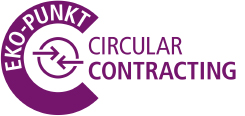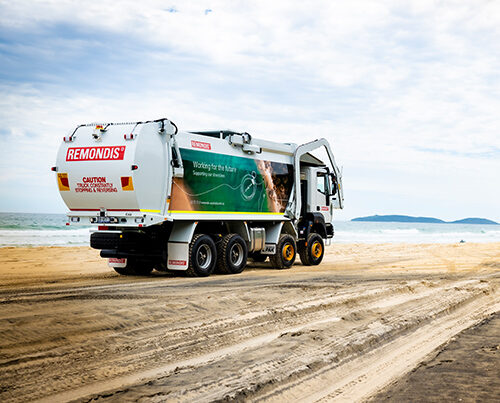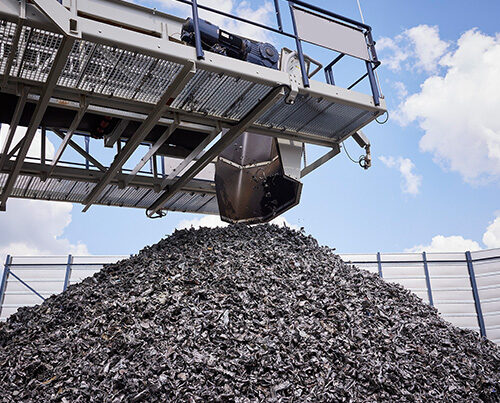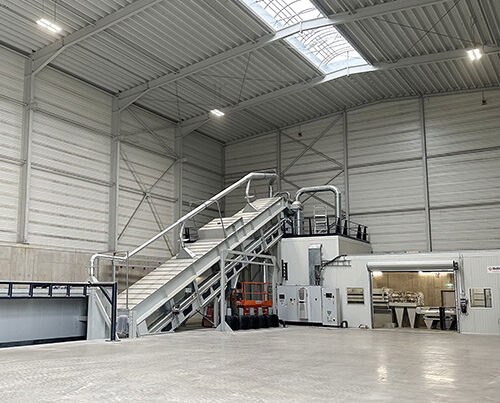According to market research institute Conversio, it would be necessary to almost quadruple the amount of recyclate used in plastic packaging in order to achieve the recyclate quotas proposed in the draft European Packaging Regulation (PPWR) for 2030. Against this backdrop, the demand for recycled raw materials is likely to increase significantly in the coming years, which could lead to an undersupply of this scarce commodity.
With Circular Contracting, EKO-PUNKT now offers companies the opportunity to contractually secure their supply of high-quality post-consumer recyclates.
1,615 kilotonnes of post-consumer recyclates were used to produce plastic packaging in 2021. This corresponds to an average recyclate content of 10.6 per cent per packaging. By 2030, this amount would have to increase to 6,052 kilotonnes in order to achieve the targets of up to 35% set out in the draft European Packaging Regulation (PPWR), depending on the type of packaging. This is the conclusion reached by the consulting and market research company Conversio Market & Strategy in its analysis “Use of recyclates in Europe 2020 to 2030” from September 2023, which was commissioned by the IK Industrievereinigung Kunststoffverpackungen.

“You don’t have to be a prophet to predict how this will affect the recyclate market. Post-consumer recyclates in particular will be in high demand in the coming years. The existing undersupply of this scarce commodity will foreseeably worsen as a result.”
Stefan Munz, Head of Innovation and Sustainability at EKO-PUNKT
Securing the supply of recyclates with Circular Contracting

EKO-PUNKT, REMONDIS’ Dual System, is now offering packaging distributors a way to protect themselves against future supply bottlenecks with its “Circular Contracting” model. It combines the legally prescribed licensing obligation with the contractually secured supply of high quality post-consumer recyclates – even on a long-term basis.
In return for their packaging licensed from EKO-PUNKT, customers receive a corresponding volume equivalent of high-quality recycled materials to replace the primary raw materials previously used. This enables companies to produce new packaging again and again in an environmentally friendly way. Not only do they retain control of the raw materials, feed their packaging materials into a genuine cycle and make a demonstrable contribution to climate and resource protection, but they also fulfil the requirements for the use of recyclates in the planned EU Packaging Ordinance (PPWR).
Some companies have already recognised the benefits: “Manufacturers that have been known for years for their highly ecological products are specifically focusing on our circular contracting. First and foremost the popular Bübchen brand,” reports Munz.
A pioneer in circular packaging management
As REMONDIS’ Dual System, EKO-PUNKT sees itself in a pioneering role when it comes to circular packaging management: “In the short to medium term, we want to be the contractual partner for retailers and industrial businesses when it comes to packaging, offering a complete service with no ifs or buts. Including guaranteed, long-term security of supply with post-consumer recyclates,” says Munz. “We can say this so confidently because we started working towards this goal earlier than others.” Within the REMONDIS Group, EKO-PUNKT already has access to the input material needed to produce recyclates. “Where others first have to set up complete structures,” explained Munz, “we, as a competence centre for packaging, bundle together what we have been doing in an exemplary way for years: collecting, sorting, recycling and making it sustainable.”
In addition to licensing and supplying recyclates, EKO-PUNKT also offers testing of packaging with regard to its recyclability and advises on optimising its eco-design.
Image credits: © REMONDIS












